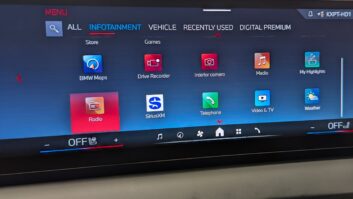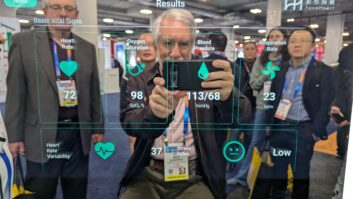The FCC has received lots of feedback on the proposed technology from GeoBroadcast Solutions to allow FM stations to use boosters to originate programming on a limited basis, to provide geo-targeted content.
HD Radio developer Xperi told the FCC this week that the experimental field testing conducted by GBS to support its ZoneCasting technology presents an incomplete record of the system’s performance and validates Xperi’s concerns. In fact, Xperi went so far as to conduct its own field tests of the booster technology earlier this year.
The FCC has been taking comment on studies submitted by GBS about booster operations at KSJO(FM) in San Jose, Calif., and WRBJ(FM) in Brandon, Miss. We reported this week on the strong criticism of the tests from NAB and many other broadcast groups, and on support for GBS from NABOB and MMTC.
Xperi also filed comments.
“The testing environment created by GBS did not sufficiently account for and/or evaluate all of the potentially problematic scenarios or test routes,” Xperi told the FCC. “The Xperi testing did, however, confirm our hypothesis that the ZoneCasting system could cause significant disruption to digital services (HD Radio availability) in transition regions. Left unabated, this disruption is likely to result in an unacceptable level of dissatisfaction among consumers and automotive manufacturers.”
The GBS testing paints an “incomplete picture” regarding the performance of ZoneCasting regarding digital transmissions. Only one of the two test stations, KSJO(FM), transmits an HD Radio Signal, according to Xperi.
In previous comments to the FCC, Xperi had expressed concern about digital-to-digital interference in the transition regions between zones. To investigate, Xperi said its employees worked with GBS to conduct field tests designed to evaluate the impact on HD Radio reception performance at KSJO.
“Xperi’s more recent testing amplify Xperi’s concerns regarding the performance of the ZoneCasting system in transition zones. The disruption to the listening experience was at times significant, and Xperi is very concerned that the potential benefits of ZoneCasting will be far outweighed by an inevitable increase in listener complaints,” it wrote.
Xperi’s tests were conducted on in late March of this year, and the results demonstrate that if “main and zone boosters are not properly synchronized, disruptive digital audio outages ranging in duration from a few seconds to one minute are possible. The existence of digital dead zones underscores the importance of establishing and maintaining proper synchronization of HD Radio boosters.”
The HD Radio developer said its field tests demonstrated a generally positive listener experience when driving within a zone, but it identified three potential issues that it said could have a profoundly negative impact on the listener experience:
- Prolonged interruptions to digital audio occurred after driving through a transition area from a strong main signal to a strong zone signal (or vice-versa), indicating that the main and zone signals were not synchronized at the physical layer, resulting in digital dead zones.
- Degradation in digital signal-to-noise ratio occurred in areas where main and booster antennas broadcasting identical programs produced similar signal levels, indicating digital-to-digital co-channel interference due to improper digital synchronization.
- Routes were identified within a transition area where alternately acquired main and zone digital signals could result in frequent and disruptive switching between main and zone audio programs for a significant length of time, even if the main and zone signals were fully synchronized.
Xperi told the FCC the interpretation by GBS of the data provided in its KSJO test report was “overly positive and may have favored demonstration of successful outcomes.” And the company expressed concerns about whether the requisite standard of implementation can be achieved on a mass scale.
It concludes: “The commission must approach its evaluation of the ZoneCasting system from the perspective that any disruption to the listening experience is simply unacceptable.”
Reply comments in the rulemaking proceeding (RM-11854) are due June 21.







